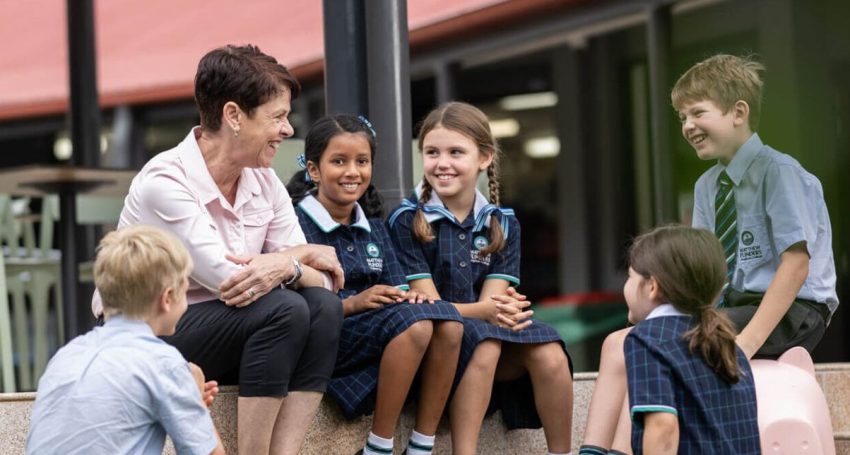Learning the art of conversation
Features
“Conversation enables parents to learn about their child. At the same time, parents are contributing to their child’s learning and construction of meaning…Conversation enables connection and reinforces the critical bond between a parent and child, reflecting the shared love and trust that contribute to a positive wellbeing,” says Chris Curtain from Matthew Flinders Anglican College

“A conversation is so much more than words: a conversation is eyes, smiles, the silences between words.” – Author, Annika Thor
Life is about learning, and the art of conversation is certainly a skill worth learning from a young age and continually developing throughout our lives.
So when was the last time you had a great conversation? You know, the kind that has you actively engaged, with a chance to share information, give an opinion and perhaps even debate a hot topic. Learning the art of conversation is a valuable life skill that takes effort, empathy and practise.
What makes a great conversation?
Great conversations involve thinking and some kind of learning. The interactions are enablers for emotions, even if they are not expressed. A conversation is an opportunity to build connections and relationships, and a good conversation can make a person feel valued, contributing to a positive sense of identity and wellbeing.
Collaboration is a key element of conversation. It is often likened to a game of tennis, taking turns to speak and respond in ways similar to serving and returning in tennis. Learning to listen and taking turns are key skills to being a good conversationalist.
Listening is also closely linked to the development of empathy; listening to others in order to understand perspectives. Good conversation skills enhance social interactions and the ability to make and keep friends.
Learning conversation skills in the Flinders Primary School
At Matthew Flinders Anglican College, our staff team encourages students to develop their conversation skills in a range of informal and formal ways.
For example, in the Flinders Primary, from the first day of the Prep year and onwards, students learn the art of conversation through:
• daily class relationship-building activities
• letter writing projects, for example, to welcome new students and connect with elderly people in the community
• regular parent engagement sessions involving students sharing and showcasing work and learning with parents
• wellbeing lessons, including games such as Socially Speaking, a board game that role-plays a range of skills, such as turn taking, eye contact, compliments and greetings to reinforce effective social interactions.
Conversation-building strategies for families
For parents keen to support teaching children good conversation skills, here are some practical approaches to consider as part of daily home life:
• Model what it takes to have a good conversation. Give your full attention when speaking to your child. This may mean putting the phone down or away, looking at your child and really listening to what they are saying.
• Teach your child how to wait and take turns as you both “serve” and “return”.
• Play physical and vocal games that encourage turn taking, reinforcing the need to wait and being interested in what the other person is doing or saying.
• Be intentional when initiating conversations. Ask your child questions, particularly “why” questions that encourage thinking and elaboration and allow for the conversation to continue.
• Use books and reading as a conversation starter, sharing favourite parts, predicting what may happen next, discussing characters and events and making connections to their own life and experiences.
Advertisement
Conversation enables parents to learn about their child. At the same time, parents are contributing to their child’s learning and construction of meaning. This language stimulation is part of the benefit, but parenting expert Michael Grose states another is the actual engagement in conversation. Conversation enables connection and reinforces the critical bond between a parent and child, reflecting the shared love and trust that contribute to a positive wellbeing. (Talking to Kids Makes them Smart, Parenting Ideas website)
So what conversations will you initiate with your child today with “eyes, smiles, the silences between words”. Be assured that it will be well worth your time invested.
First published on the Matthew Flinders Anglican College website on 5 October 2022.





